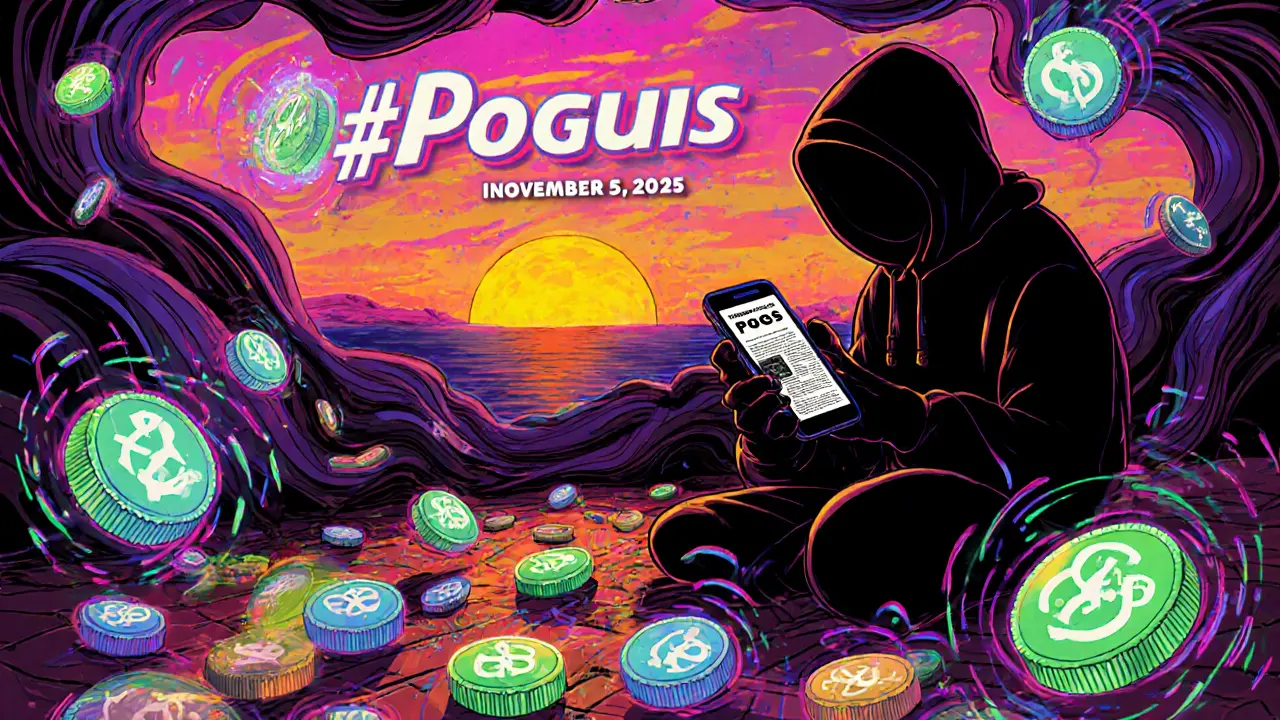POG Coin: What It Is, Why It Matters, and What You Need to Know
When you hear POG coin, a low-market-cap cryptocurrency often promoted through social media hype and fake airdrops. Also known as POG token, it’s not a project with technology, team, or roadmap—it’s a speculative asset built on attention, not utility. Unlike Bitcoin or Ethereum, POG coin doesn’t solve a problem. It doesn’t power a network, enable payments, or back a game. It exists because someone created it, slapped a name on it, and hoped people would buy in before it vanished.
POG coin is part of a larger group of tokens that thrive on noise, not numbers. These are the same coins you see trending on Twitter because a bot farm pushed them, or on Telegram groups where users are promised free tokens if they share a link. It’s not a new tactic—it’s the same old pump-and-dump playbook, now wrapped in Web3 jargon. These tokens often have names that sound like memes (POG comes from "Player of the Game," a gaming term), zero whitepapers, and no exchange listings beyond tiny decentralized platforms. They’re not investments. They’re bets on whether someone else will pay more tomorrow.
What makes POG coin dangerous isn’t just that it’s worthless—it’s that it looks like everything else. You’ll see fake CoinMarketCap listings, screenshots of "price spikes," and YouTube videos claiming "1000x potential." But when you dig, there’s no team, no code updates, no community building—just a token contract and a Discord channel full of bots. It’s the same pattern you see with Portuma (POR), a metaverse ad token with no real use case and a market cap under $300K, or Electric Cash (ELCASH), a coin that crashed 99.9% and has been abandoned for years. These aren’t outliers. They’re the norm in the low-cap crypto world.
And then there’s the airdrop trap. Fake airdrops for POG coin pop up constantly—claiming you’ll get free tokens if you connect your wallet, follow a Twitter account, or pay a small gas fee. Those aren’t giveaways. They’re phishing hooks. Your wallet gets drained before you even see a single token. This isn’t speculation—it’s theft dressed up as opportunity. The same scams are tied to KIM (KingMoney), a token with no official airdrop, yet flooded with fake claims, and FOTA, a token trading at $0 with no rules or official team. If it sounds too good to be true, it’s not just unlikely—it’s designed to steal from you.
So what’s left? If you’re looking for real value in crypto, you’ll find it in projects with transparent teams, active development, and real users—not in tokens named after internet slang. The posts below cut through the noise. You’ll see real reviews of exchanges, deep dives on tokenomics, and clear breakdowns of what’s actually working in 2025. Skip the hype. Learn what matters.
What is POG (POGS) crypto coin? The truth behind the nostalgic meme token
POG (POGS) is a fake crypto coin pretending to be a nostalgic 90s meme token. It has no real technology, team, or utility. Claims of price surges and 12% staking rewards are scams. Avoid it.
